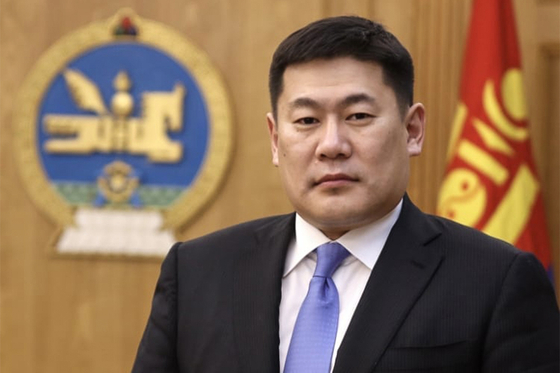
Mongolia plunged into political crisis on Tuesday after the country’s Prime Minister, Luvsannamsrain Oyun-Erdene, was ousted via a parliamentary vote of no confidence, following weeks of rising public anger over reports of his family’s ostentatious lifestyle amidst national economic difficulties [para. 1]. The move comes at a sensitive time for the mineral-rich, landlocked nation, which is strategically positioned between Russia and China.
The prime minister’s downfall followed weeks of vocal protests and public outrage after social media images and media reports spotlighted the extravagant lifestyle of Oyun-Erdene’s 23-year-old son, Temuulen, and his fiancée. Images of the young couple with designer bags, diamond rings, helicopters, and luxury cars sparked widespread indignation in the capital, Ulaanbaatar, where citizens were already burdened by economic hardship. As a result, many demonstrators, organized in part by the protest group “Ogtsroh Amarhan,” called for the prime minister’s resignation, citing both the family’s alleged corruption and Mongolia’s broader economic woes including high inflation, unemployment, and poverty [para. 2][para. 8][para. 11][para. 12][para. 13].
During the parliamentary session, Oyun-Erdene failed to secure the needed 64 votes to retain his post, as only 44 lawmakers supported him while 38 opposed, in Mongolia’s 126-seat State Great Khural. Having lost the vote, Oyun-Erdene’s coalition government was dissolved. The Mongolian People’s Party (MPP), which won a majority of 68 seats in the last election, is expected to lead efforts to form a new government, while Oyun-Erdene will act as caretaker prime minister for up to 30 days per Mongolia’s constitution [para. 3][para. 5][para. 6].
Political analysts, such as Julian Dierkes of the University of Mannheim, noted that significant policy changes are unlikely, as new leaders are often chosen from entrenched political networks [para. 7]. Oyun-Erdene himself decried the allegations as unfounded slander, submitting the confidence vote in an attempt to settle the controversy, but also warning that continued instability could threaten Mongolia’s democratic stability [para. 9][para. 10].
The scandal involving Oyun-Erdene’s family escalated to the point where Mongolia’s anti-corruption agency launched an official investigation, with reports indicating Temuulen was recalled from Harvard University for questioning related to possible corruption [para. 8]. The prime minister’s office has consistently denied wrongdoing, stating all financial disclosures are legally filed and dismissing the accusations as “smear” tactics [para. 14].
Mongolia, a democracy since 1991, has a long history of high-profile corruption cases fueling public unrest. A notorious 2022 scandal over illegal coal exports reportedly cost the country $12 billion and implicated senior officials. Earlier in 2024, U.S. prosecutors also targeted luxury properties in New York City belonging to a former Mongolian prime minister, suspecting they were bought with the proceeds of corruptly awarded mining contracts [para. 15].
Oyun-Erdene, born in 1980, previously gained recognition for leading anti-corruption movements. He became prime minister in 2021, pledging to diversify Mongolia’s economy, which is heavily reliant on mining—an industry responsible for a quarter of the country’s GDP. As part of his economic agenda, his government had unveiled 14 major projects, including railway expansion and renewable energy initiatives [para. 16].
Amid this turbulence, Mongolia remains challenged by high poverty levels—over a quarter of its 3.5 million people live in poverty—and recent economic stagnation, with first-quarter 2024 exports falling 18% year-on-year and inflation remaining elevated [para. 12][para. 13]. The political turmoil further exacerbates the nation’s ongoing struggles with corruption, inequality, and governance [para. 1][para. 12][para. 13][para. 15].
AI generated, for reference only
